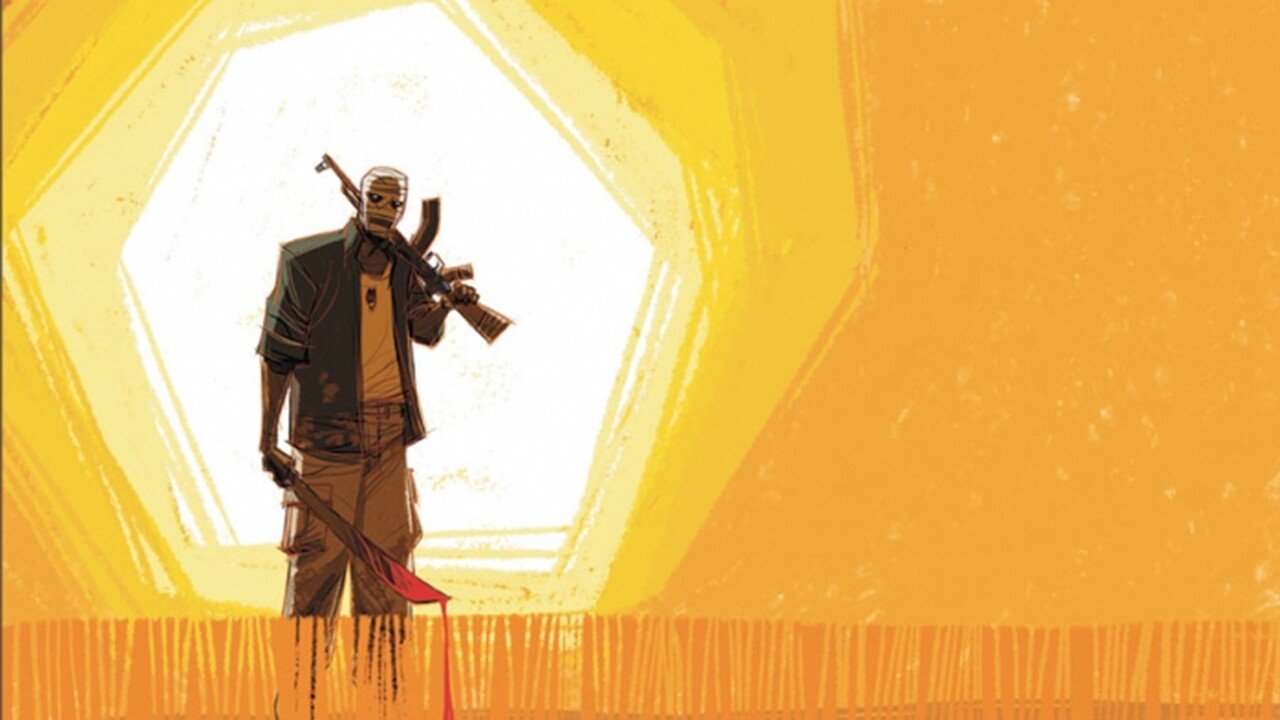Joseph Kony is an evil bastard.
And everything I learned about him I learned from comic books.
This might seem surprising, considering just how far Invisible Children’s “Kony 2012” viral video campaign penetrated pop culture.

This thing was everywhere. This is not an overstatement – to date, the video has garnered over 90 million views on youtube.
But as quickly as it rose to prominence, so did some rather harsh criticism. It’s summed up astutely by sociology and political science student Grant Oyston here.
Invisible Children was ragged on for a lot of things – the most egregious being that its video was too cut and dried, too black and white.
The fight between the Ugandan military and Kony’s Lord’s Resistance Army isn’t a simple matter of good versus evil or right versus wrong.
There’s too much injustice and sadness spread out here for there to be a right “side” to root for.
An understanding of that situation was exactly what I got out of Joshya Dysart’s Unknown Soldier.
The book centres around Dr. Moses Lwanga, a Ugandan doctor.
He’s caught in the middle of the LRA’s insurgency in Acholiland, and through some hardship and well-placed government programming (it is a comic book, after all) he’s swept up in the horrific violence in the region.
Sure, it’s fiction. But it’s meticulously researched, as outlined on Dysart’s website. This isn’t a story loosely thrown together in a tragic setting – it’s made stronger by delving into the intricacies of Ugandan life.
Those intricacies are usually covered in blood.
Unknown Soldier is incredibly violent, and deals with graphic depictions of rape, torture, and yes, child soldiers.
It’s a hard book to read. And it should be. There’s no one to root for – Moses is a killer, fighting children ripped from their parents and forced into military service.
Dysart knows there’s no “white knight” here – and that’s where Invisible Children got it wrong.
It’s hypocritical to fund one side of a war like this – unlike what Invisible Children would have you believe.
Dysart seems to understand this, even though the book is fiction.
Yet the Kony 2012 campaign presented the issue as something hordes of uninformed people could throw money at in order to solve a problem.
Donate some cash, fix it, feel better about yourself.
But that’s impossible. The problem is too far-reaching and too engrained in the fabric of the place to be solved so simply.
Dysart gets it.
Consider this excerpt from his blog:
“Traveling to East Africa, living with the Acholi, Lango and Baganda people, staying in their homes, eating food from their tables, witnessing the joy and sorrow of their existence… nothing else in my life has compared to these experiences and hammering that raw humanity I witnessed into a war book has not been easy. Sometimes I question if it’s the right thing to do at all.”
Contrast it with this Al Jazeera video:

Which one actually speaks with some empathy?
Dysart created a book that carried enough truth to make me want to read about Kony, to understand the region and it’s problems, to truly get informed. It pushed me to the “source material.”
He told the story with the weight it deserved, without fanfare and hype. It stood on its own, even though it was “just” a comic book.
There was no happy ending – but then, there really couldn’t be.
That’s why Unknown Soldier did more to legitimize a move against Kony than the Invisible Children video ever could.
It eschewed sensationalism for realism. It takes more thought and careful consideration than a 30 minute video can muster to explain this situation.
This is not to say that I fully understand it, because I don’t. No one living outside Uganda really could.
But a comic book helped me empathize with what Ugandans are going through and try to understand it better.
We’ve come a long way.



